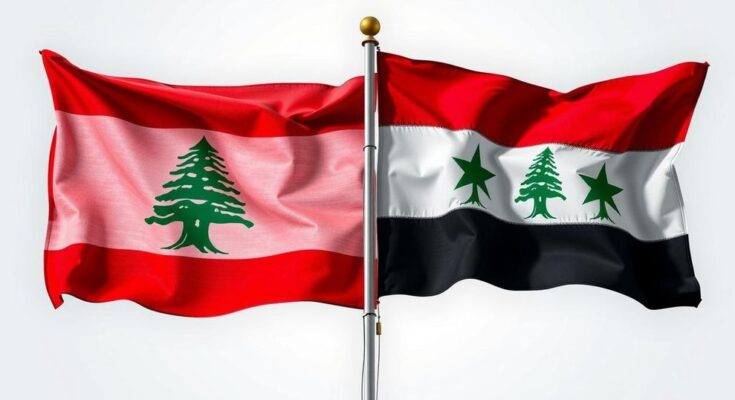Lebanon’s new Prime Minister Nawaf Salam, elected with a two-thirds majority, aims to normalize relations with Syria following years of strained interactions. His appointment, alongside President Joseph Aoun, signals a significant shift in Lebanese politics, focusing on restoring diplomatic ties and addressing the refugee crisis. Faith-based organizations urge support and prayers for a stable future in the Middle East.
Middle Eastern diplomacy appears to be on the precipice of a renewed chapter, particularly between Lebanon and Syria. Recently appointed Prime Minister Nawaf Salam, following a parliamentary election that resulted in a two-thirds majority in favor of his leadership, has garnered support for significant changes in Lebanon’s domestic and foreign policies. His election marks a departure from the previous administration and reflects a collective desire for transformation within the Lebanese political landscape. The new government, led by President Joseph Aoun and Prime Minister Salam, prioritizes the normalization of relations with Syria, a move aimed at addressing longstanding tensions that have historically characterized the bilateral relationship.
Syria’s occupation of Lebanon from 1976 to 2005 severely damaged diplomatic relations, and the influx of Syrian refugees during the Syrian civil war beginning in 2011 has further strained Lebanon’s resources. Current leaders are cognizant of the necessity to engage in dialogue with the Syrian government to facilitate the return of refugees, a matter that has been contentious due to President Bashar al-Assad’s reluctance to collaborate. The new administration has indicated that establishing a cooperative framework to secure borders and restore normalcy is imperative for both nations’ stability.
Faith-based organizations within Lebanon, such as Triumphant Mercy Lebanon, are advocating for peace and discernment as these political changes unfold. As leaders grapple with the complexities of regional dynamics, prayers are solicited not only for Lebanon but for the entire Middle East, emphasizing the call for stability within this volatile region. The new leadership seeks to foster relationships that could lead to a promising future for Lebanon and its neighbors, working towards shared security and mutual benefit.
Reflecting on the current political shift, it is crucial to remain vigilant and supportive of the emerging leadership as they navigate these opportunities for progress. Peace and cooperative relations with Syria could potentially redefine Lebanon’s socio-political landscape and foster resilience against the backdrop of regional challenges.
Lebanon and Syria have a historically tumultuous relationship, shaped by decades of conflict and political strife. Syrian troops occupied Lebanon intermittently from 1976 until 2005, creating a legacy of mistrust and complicated diplomatic relations. The ongoing Syrian civil war, which erupted in 2011, led to an influx of Syrian refugees into Lebanon, putting immense strain on the country’s already fragile infrastructure and resources. The political climate has often been dominated by figures who have not prioritized reconciliation, but recent shifts in leadership suggest a potential for renewed dialogue and cooperation. With the election of Prime Minister Nawaf Salam and President Joseph Aoun, there is an opportunity to revisit and normalize relations with Syria, paving the way for a critical realignment in regional dynamics.
In summary, Lebanon’s recent political transitions signal a promising new direction for regional relations, particularly with Syria. The new leadership under Prime Minister Nawaf Salam and President Joseph Aoun aims to address complex issues such as the normalization of relations and the safe return of Syrian refugees. The collaboration of these leaders may lay the groundwork for stability and improved diplomatic ties. As they embark on this journey, support and prayers for peace in the Middle East are essential.
Original Source: www.mnnonline.org




